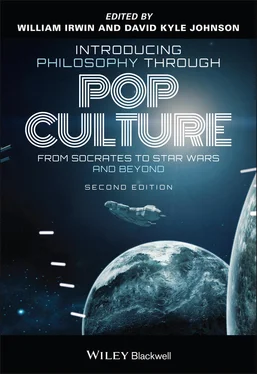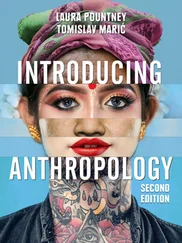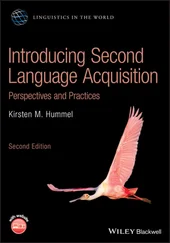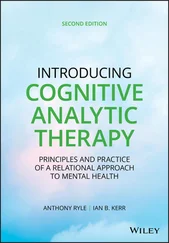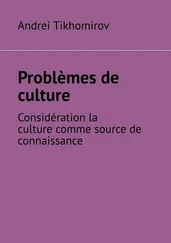Philosophically, this offers an interesting version of what is called the Paradox of Fiction, which results from three conditions: (i) we have emotional responses to fiction that are genuine and rational; (ii) in order for our emotional responses to be genuine and rational we must believe the fiction; but (iii) no one really believes the fiction.
Most solutions attempt to resolve the paradox by denying or modifying one of the three conditions. But what if we approach this in a different way? What if we suggest that our emotional response to Black Panther is rooted in the film's (knowingly) fictional representation of our real world? In other words, we know Black Panther is fictional, yet we also know that the issue of racism is real. So, our interpretation of Black Panther depends on our knowledge of both the fictional elements of the story and the real issues of the real world the story represents. Put another way, our interpretation (our emotional response) is rooted in an epistemology that requires both fictional and real knowledge. Let's see how this works.
“The Illusions of Division Threaten Our Very Existence”
Fictional works such as Black Panther offer viewers a unique type of what Gaile Pohlhaus calls an epistemic resource : a resource that individuals draw upon in order to know. 2 Pohlhaus tells us that epistemic resources are collectively held and maintained by an epistemic community; a community of knowers (which given the internet, can be very large). 3 Above all, our epistemic resources need to “answer to our experiences.” 4 Pohlhaus lists three potential kinds of epistemic resources: (i) language to express experience; (ii) concepts used to understand; and (iii) criteria to judge the usefulness of a resource. 5 Pohlhaus acknowledges, though, that there may be other kinds of resources beyond these three. 6 For our purposes, we need to answer two questions about fictions and epistemic resources: (i) Do the resources we gain from fictions like Black Panther answer to experience? (ii) What kind of epistemic resource are they, if they are not language, concepts, and criteria?
When we consume a fictional work, it is possible to learn from and use elements of the work to better interpret the world. Not every aspect of a fictional work is going to be answerable to or directly reflect our experiences in the real world. I have not personally met a Klingon warrior, for example, attended Hogwarts School of Witchcraft and Wizardry, or wielded one of Okoye's spears. Fiction is enjoyable because it can reach beyond what is possible of the real world, and is not confined by it, like everything Shuri creates in her lab. But fiction also contains elements that are salient to us in the real world, that correlate to what we experience or what we know, like Killmonger's Oakland upbringing and his understanding of slavery and oppression. As such, we can understand Black Panther as providing viewers with epistemic resources , because it gave (and continues to give) many people new conceptual tools to understand and communicate about Black and particularly African American culture and experience, whether the viewer is Black or is not. Thus, the film serves as an important addition to the epistemic resources that we all share and collectively maintain.
Even if it's just the moral of the story – such as the racial politics of X‐men , or the allegory of American liberalism in Star Trek: The Original Series – fictional works like Black Panther can add to our understanding of real‐world phenomena even if they don't directly represent them. In this sense, fictions do seem to answer to our experiences. We draw upon them in order to better understand and interpret the world, and therefore gain epistemic resources. The question of what kind of resources fictions offer – if not language, concepts, and criteria – however, requires a longer response.
“The Real Question is: What are Those?”
Fictions are tied up with the imagination; a fiction asks us to use our imagination to mentally represent to ourselves what the fiction is describing or showing. 7 It asks that we employ a “suspension of disbelief,” treating the fiction as though it's true and allowing ourselves to be immersed in it. Often, we know that what we subsequently imagine really could be (or could have been) if circumstances in the real world were different. Fictions in this sense ask us to imaginatively entertain possibilities , particularly possibilities pertaining to oneself. 8
This is what Catriona Mackenzie calls “imagining oneself otherwise.” 9 She argues that the cultural imagery that constantly surrounds us – including popular fictions – informs our imagination through constructing a repertoire of imagery upon which we draw when we want to imagine something. 10 The subsequent imaginings have affective power: products of our imagination are highly evocative, causing emotional reaction and deep engagement with their content. 11 Mackenzie argues that we use imaginative practices to develop our identity and self‐conception, through what we imagine of ourselves. 12
For example, Black Panther asks us to imagine a world in which an African nation (Wakanda) did not suffer invasion, colonization, enslavement, and plundering of its resources by a white Western nation. It further asks us to imagine that, given the ability to self‐determine, this country uses its rich natural resources to further develop itself and promote its people, becoming the richest, healthiest, and most technologically advanced nation in the world. Importantly, Black Panther also asks us to imagine that this nation was able to maintain close connection to and honor its cultural traditions, unfettered by Western interference. People in the real world where there is no Wakanda can therefore imagine what might have been, or what could be, had there been an alternate world history. Black audience members have the opportunity to unite themselves around Wakandan identity, building the film's positive representation of Black identity into their self‐conception. The affectivity of fiction‐based imaginings makes this possible.
The hypothetical nation of Wakanda also gives audience members of other racial groups a different or new perspective on Black identity, which can aid their interpretations of the real world. That is, the film challenges racist stereotypes of Black people and culture, suggesting that the absence of a Wakanda‐like nation in the real world is due to Western interference rather than some inherent problem in Black societies. Through the imaginative engagement with fiction, and the affective power of the imaginings, we glean new meanings, significance, and understanding of things in the real world. The epistemic resources we gain from fictions are not language, concepts, or criteria, but another sort of resource – a narrative meaning‐making practice that involves imagining what the fiction tasks us with imagining. With resources like Black Panther improving our collection of epistemic resources, we are able to go forth and interpret the world better than we would have before.
Black Panther is a good epistemic resource by Pohlhaus's definition because the film offers nuanced representation of Black culture, experiences, attitudes, and possibilities, unlike stereotypical representations, and therefore improves our interpretations of the world. Black Panther also reflects aspects of reality and is answerable to experience, despite being fiction, because of the team of majority Black creators who constructed the fiction. Therefore, when the film is used as a tool through which to interpret the world, the interpretation is less likely to be inaccurate or incorrect because of faulty resources. Fictions like Black Panther frame aspects of the real world into its own narrative (like Oakland in 1991 or the history of slavery), and when we consume that fiction we are able to use that framing to better interpret and understand those aspects of the world that the fiction represents. In that sense, consuming films like Black Panther is an epistemic activity as well as an imaginative one. It is an activity of adding to our epistemic resources, both personally in one's own mind, and as a collective of people who now have that resource available to them. Imaginative engagement in the fiction is not merely about entertaining possibilities or building one's self‐conception, it is also about supporting our ability to interpret the world well.
Читать дальше
